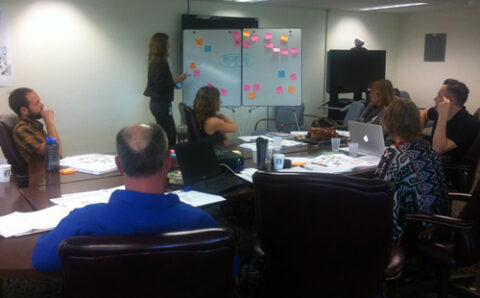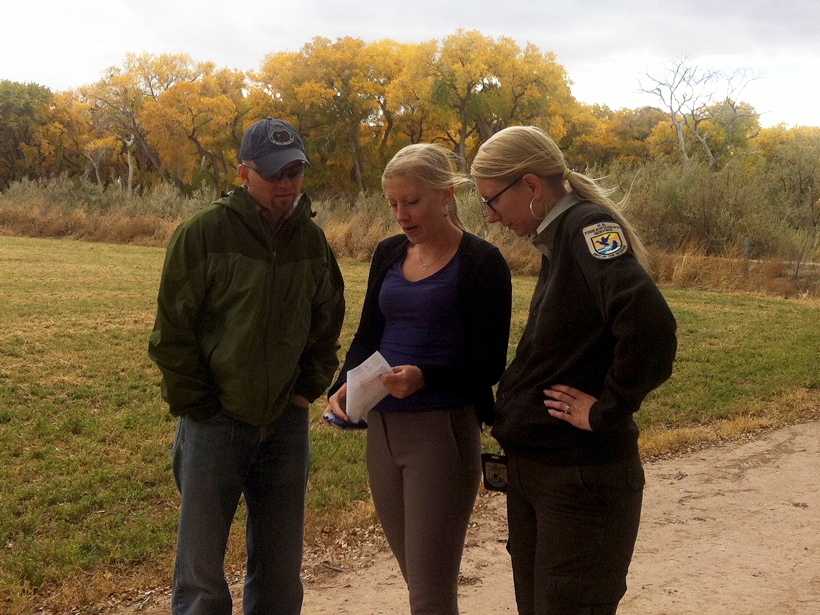Responding to the challenges posed by climate change is a primary goal for natural resource managers across the United States. Federal agencies now require the effects of climate change to be factored into natural resource management plans, and resource managers are being asked to develop comprehensive climate adaptation plans. Regional climate science programs are available to aid in these efforts.
These regional climate programs are administered by four federal agencies and include the following:
- the National Oceanic and Atmospheric Administration’s 11 Regional Integrated Science Assessment (RISA) programs
- the Department of the Interior’s (DOI) eight Climate Science Centers (CSC), administered by the U.S. Geological Survey
- the 22 Landscape Conservation Cooperatives (LCC), sponsored by the Fish and Wildlife Service and other DOI agencies
- the U.S. Department of Agriculture’s seven regional Climate Hubs

Given this broad and complicated federal investment, users of climate science—including many resource managers—have expressed confusion about the roles of each program, whereas policy makers have voiced concern over the potential for duplication and a lack of coordination. It is critical that these programs demonstrate their individual value and their capacity for collaboration. Yet institutional and political barriers can hamper communication and sharing of limited resources.
With the goal of changing perceptions and fostering productive dialogue, 75 program representatives and adaptation professionals gathered last spring in St. Louis, Mo., at the second biennial National Adaptation Forum. Among the speakers were officials from the Southeast Climate Science Center, the Caribbean Climate Sub Hub, and the Caribbean Landscape Conservation Cooperative, who cited their close proximity, frequent communications, and clearly defined roles as the basis for successful collaboration. Coordinators from the Desert Landscape Conservation Cooperative and California Landscape Conservation Cooperative and a southwestern Regional Integrated Science Assessment program, the Climate Assessment for the Southwest, described pathways for synergy, including early identification of shared goals, cross participation in steering and advisory committees, and jointly funded efforts.
National leaders from the RISA, CSC, LCC, and Hub networks echoed these themes, clarifying the niche each program fills yet stressing that some overlap enables seamless leveraging of resources and expertise. Participants also learned how new online tools, such as the Climate Adaptation Knowledge Exchange, can facilitate information sharing and collaboration.
As a key outcome, participants expressed a commitment to supporting existing partnerships and increasing collaboration across programs, emphasizing that isolated efforts are insufficient to deal with the magnitude of climate impacts. This has already resulted in regional efforts to formalize partnerships (e.g., memoranda of understanding, letters of intent). Participants from diverse communities of practice, including transportation, water, and civil infrastructure, acknowledged the importance of coordinating with one another to identify shared goals and increase the likelihood of successful outcomes.
The primary challenge is to translate, integrate, and apply information to support nimble, coordinated responses to rapid climate change.
Most importantly, participants agreed that the primary challenge is to translate, integrate, and apply new and existing information to support nimble, coordinated responses to rapid change. Building this capacity is imperative. Federal entities must work collectively with universities and others to train and empower a workforce needed to not only conduct research but facilitate effective implementation of climate adaptation strategies now and into the future. Next steps include continuing this important dialogue at future American Geophysical Union meetings.
—Carolyn A. F. Enquist and Stephen T. Jackson, Southwest Climate Science Center, U.S. Geological Survey, Tucson, Ariz.; email: [email protected]
Citation: Enquist, C. A. F., and S. T. Jackson (2016), Ensuring coordination among regional climate science programs, Eos, 97, doi:10.1029/2016EO043251. Published on 25 January 2016.
Text not subject to copyright.
Except where otherwise noted, images are subject to copyright. Any reuse without express permission from the copyright owner is prohibited.
Text not subject to copyright.
Except where otherwise noted, images are subject to copyright. Any reuse without express permission from the copyright owner is prohibited.

